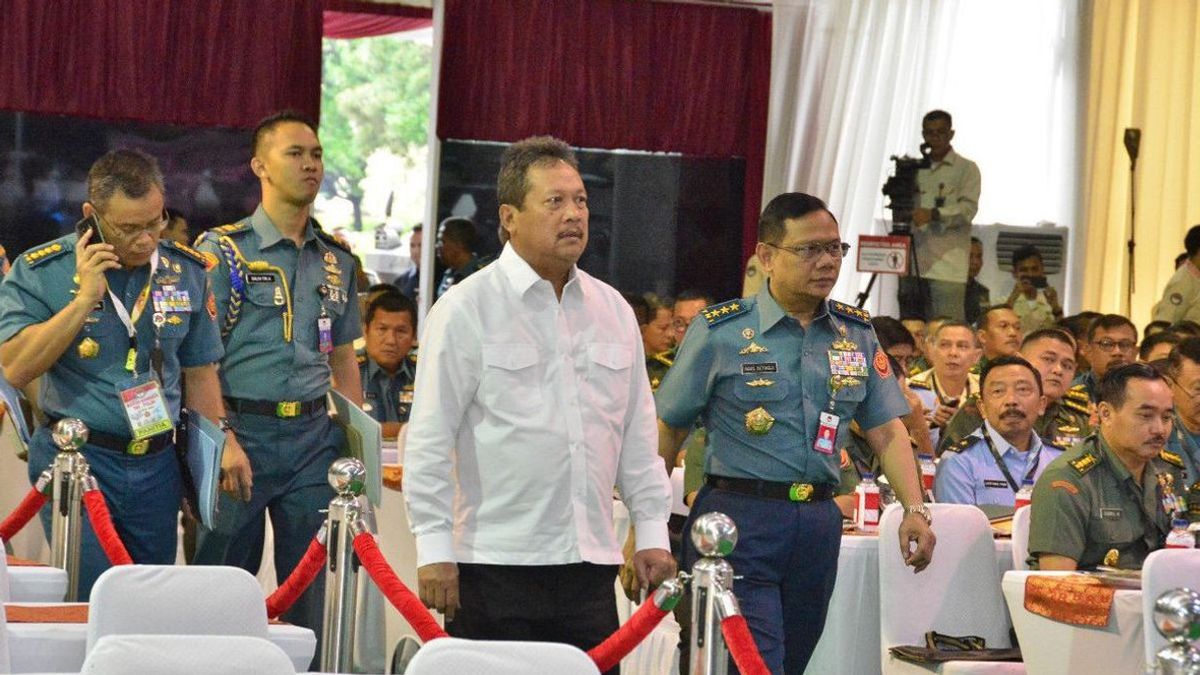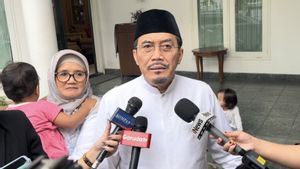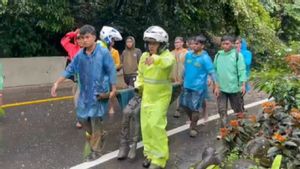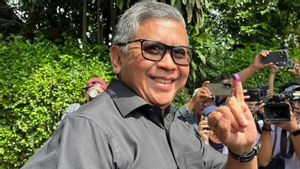JAKARTA - The Ministry of Defense (Kemhan) wants to increase food security to anticipate the impact of future disease outbreaks. Moreover, according to the World Health Organization (WHO) new viruses will continue to emerge in the future.
"So if the COVID-19 pandemic is over, it does not guarantee that the future of new disease outbreaks will not emerge. Therefore, we must improve indicators of food security in the future to anticipate disease outbreaks," Deputy Minister of Defense Sakti Wahyu Trenggono said in a webinar entitled 'Strengthening Food and People's Health as the Basis for Post-Pandemic State Resilience ', Thursday, 18 June.
According to him, there are several sectors that are prone to be affected by the disaster, including the employment sector due to the large number of unemployed due to the cessation of economic activity, the food supply sector and the health security sector.
When the three sectors cannot be managed properly, said Trenggono, it will affect food security and the country's overall sovereignty.
"Therefore, all elements of the nation need to work seriously against the threat of a pandemic so that national resilience is maintained," he said.
Regarding the food sector, Trenggono said that the commodities most consumed by the public are rice, sugar, wheat and soybeans.
"Commodities such as rice and sugar need attention to the condition of their reserves. In addition, there is a shift in which Indonesia becomes the second largest noodle consuming country in the world. This makes us high imports of wheat, as well as soybeans," he explained.
He said, facing pagebluk is analogous to war. Therefore, it needs strong combat equipment. One of the combat equipment, said Trenggono, is food reserves. Unfortunately, according to him, food reserves in Indonesia are not as strong as other countries.
"Right now our rice commodity is only strong for 69 days, compared to India which can be a year. Therefore, we from the Ministry of Defense are proposing a model that can improve national food security," he said, adding that one of them was to create special land for resilience. national food.
Based on a study by the National Development Planning Agency (Bappenas), there are 16.6 million hectares of non-forest forest areas suitable for conversion to productive agricultural land. So, Trenggono assessed, the land should be optimized for food security.
He hopes that the plan to procure land for food can be realized and contribute 20 percent of national food reserves in the future. "We make sure this is indeed for food security. So, the selected area should not change the function of the food crop area that we will develop," he concluded.
The English, Chinese, Japanese, Arabic, and French versions are automatically generated by the AI. So there may still be inaccuracies in translating, please always see Indonesian as our main language. (system supported by DigitalSiber.id)













